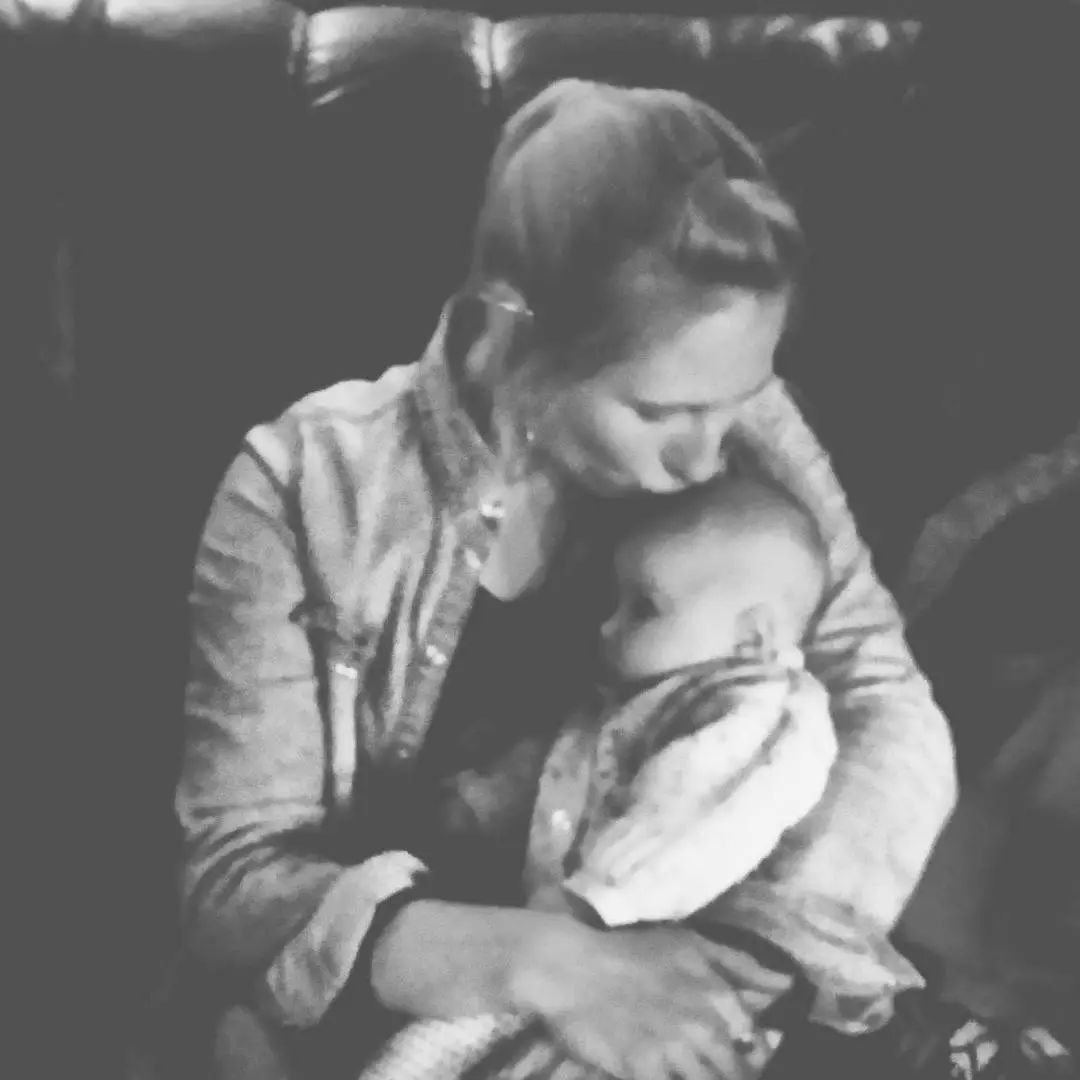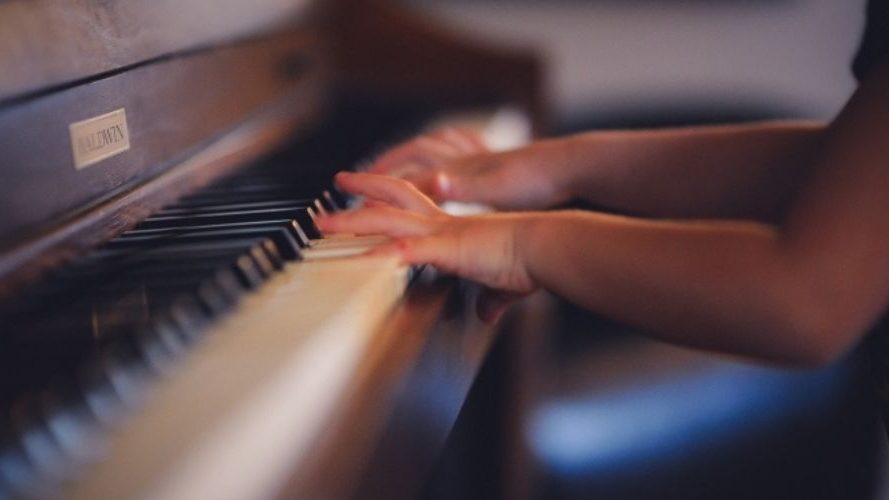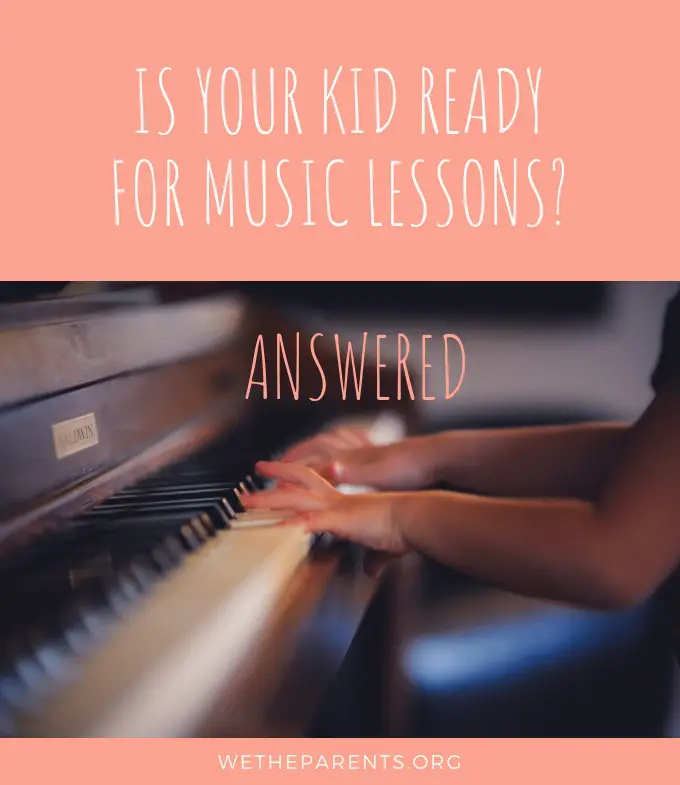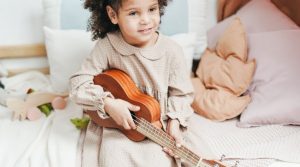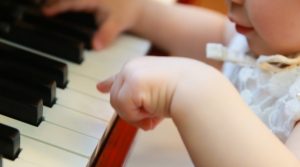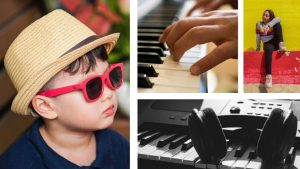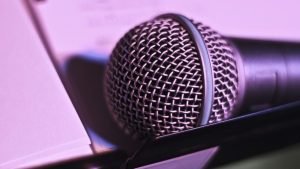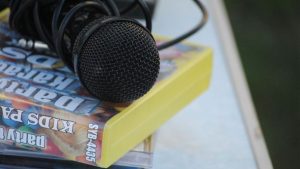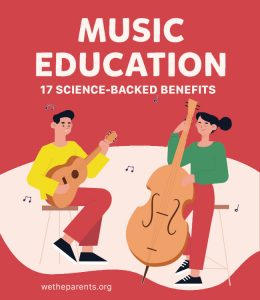This is a guest post by the awesome Abraham Levitan from PianoPower.org.
“Is my kid old enough for music lessons?”
As a music lessons provider, it’s probably the most common question I hear, and one I’m glad parents are asking. Because truthfully, age makes a huge difference in whether or not your child will succeed in — or even enjoy — music lessons.
It’s also true that there is no one “right age” to start lessons, and that readiness varies by child.
Before you start experimenting — and forking out the dough for private lessons — here’s some advice.
Piano lessons for three or four-year-olds
Pre-schoolers may love plunking on piano keys, but their true passion is testing boundaries. Sitting and following directions at the piano for 30 or 45 minutes may seem like a threat to their burgeoning independence.
For this age, I recommend group music classes as a more realistic way to warm your kiddo to music. Playing rhythm games, clapping along, marching around the room, and singing with a group are fun, age-appropriate ways to introduce your preschooler to the countless joys of music.
Group lessons offer regularity—and a relationship with an outside teacher—that prepare little ones for the discipline of private lessons. If you can’t fit a group class into your schedule, make music at home! No instruments are required, and toys will suffice. Listening to music, clapping, and singing with your kid is fun and can teach you a lot about their musical aptitude.
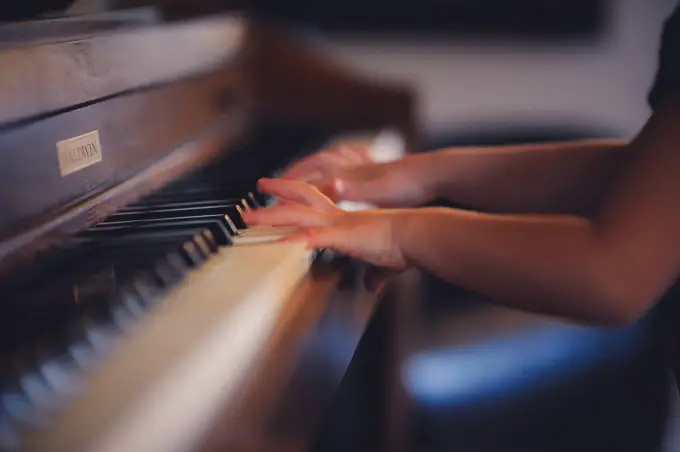
But what if my three or four-year-old shows a special musical ability?
Let’s admit it: we all wear parent goggles when it comes to our little ones. I happen to find my four-year-old brilliant for playing a Middle C with her tiny finger. But what really matters for preschoolers is continued exposure to music, and access to musical play and instruments — wooden spoons and overturned bowls count!
Nevertheless, I’ve been proven wrong. I’ve seen precocious four-year-olds wow a recital crowd with their transcendent love of performing, and other pre-kindergarteners who became exceptionally driven due to having an older sibling in lessons. If you think your preschooler might have a unique ability, ask your kid’s group music or regular teacher their opinion. They can be a valuable resource.
Piano lessons for five-year-olds
Five-year-olds can succeed in private music lessons, but they still might encounter developmental challenges. With this age, it’s sort of 50/50. Reading level, the ability to sit still and focus, and fine motor skills are all factors that affect overall success, and these qualities vary greatly from one kindergartener to the next.
If you’re unsure about starting your five-year-old in music lessons, ask yourself these questions:
- Are they reading, or able to understand that certain letters represent specific sounds in spoken words?
- Do they exhibit finger and hand dexterity? E.g., can they hold a fork and knife, tie a shoelace, grasp a pencil?
- Can they sit still for at least thirty minutes when engaged in an activity?
While true for any age, five-year-olds who have played music with a family member have an edge. If your kid loves duetting with grandpa during family sing-alongs, then he or she already understands what it means to practice and perform a song.
Similarly, having a sibling in music lessons can be a great motivator. In fact, leadership from older siblings or musician parents—or structure from a lead parent who is engaged with their child’s lessons—is one of the foremost indicators of success.
Piano lessons for six-year-olds
At age six, magical things begin to happen. Why are six-year-olds typically more ready for music lessons than their younger counterparts?
- They’re more accustomed to the rhythms of school, which means they’re used to sitting still and focusing on one thing.
- They tend to have basic reading ability, making note-reading and musical comprehension more intuitive.
- Their fine motor skills are more developed, leading to increased finger dexterity and ability to play with two hands.
By this point, your first-grader has probably performed in a school music performance, which means he’s acclimated to learning and performing a piece of music.
And here’s a situation where peer pressure can be a good thing. The peers of a six-year-old are more likely than those of younger kids’ to be starting private music lessons. They may want to take music lessons just to keep up. Besides, who wouldn’t want to play a lively piano rendition of “Happy Birthday” at their best friend’s party?
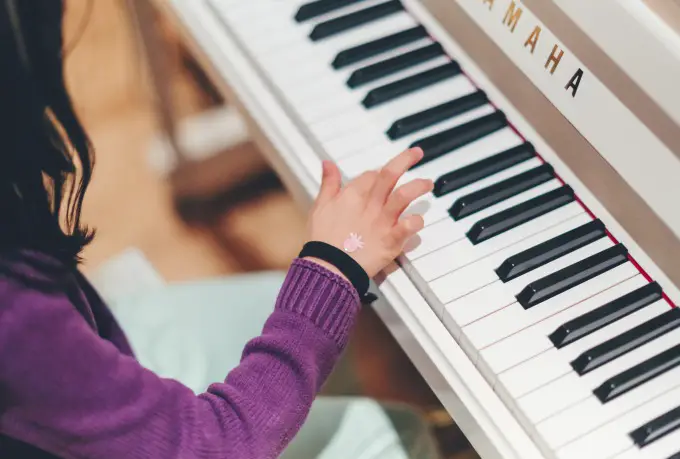
Should all kids be required to take music lessons?
I taught piano lessons for more than 15 years, and have been running Piano Power for more than ten, so you can probably guess my answer to this question. But the truth is, science backs up my belief in the universal power of music education.
Music-making stimulates parts of the brain that no other activity does. It teaches interpretive and performative skills. It allows kids to feel accomplishment at having learned something new, and to see it through to completion. It teaches them what it’s like to feel proud of something and to share it with family and friends.
But none of these benefits can happen without a supportive home practice environment. It’s unrealistic to believe your student will thrive in lessons without a conducive physical setting and loads of parental support and encouragement.
In my ideal world, every child would have a family who pitches in to make music lessons a success; that, in combination with a great teacher who really inspires them, makes all the difference.
Older beginners
Once they become adolescents, students need to be personally invested in music lessons if they’re going to succeed. With a growing interest in extra-familial relationships and a natural desire to separate from mom and dad, teens need to feel a personal stake in their extracurricular activities. Their lesson experience should include open communication with their teacher about goals and expectations, and a customized approach that capitalizes on what excites them about music.
Regardless, music lessons have benefits at any age. I hope that, throughout their young lives, you’ll seek out ways to help them develop a lifelong love of music.
About the Author

Abraham is the founder and director of Piano Power, a collaborative community of music students, parents, and teachers in Chicago. Abraham has studied piano— jazz, classical, and rock — since 1984, and even won an award for it! He is the mastermind behind the FM-era rock/pop band Baby Teeth, and one half of rock/pop collabo Teletype; their debut album “Spontanaiety”—an album that “glows with pop radioactivity”—is available on Spotify.

